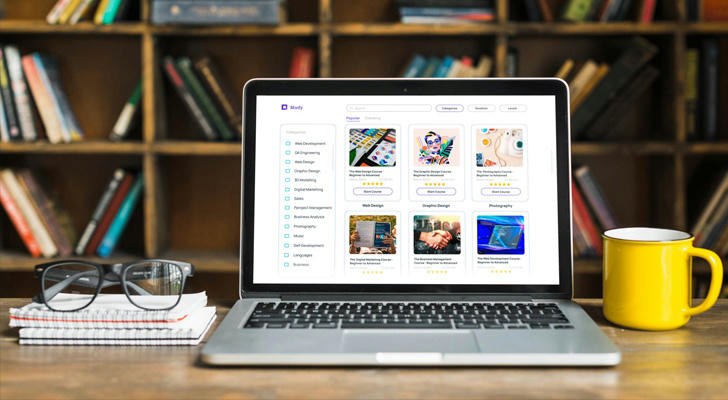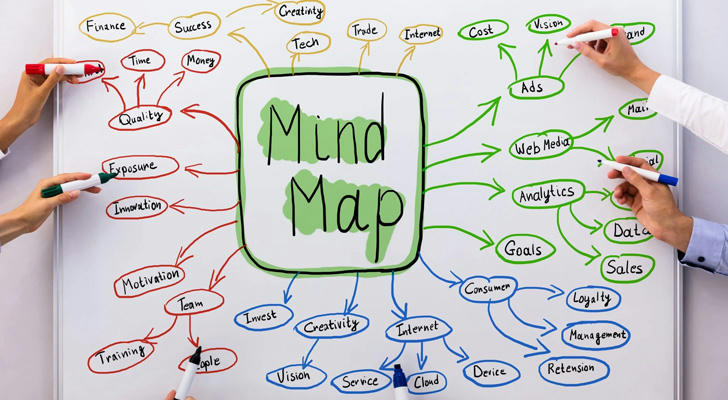From Beginner to Expert: Practical Tips for Efficient Advancement in Online Courses
With the rise of digital technology and the internet, online courses have become a key part of modern learning. They break through the limitations of time and place found in traditional education, offering flexible learning options for people from all backgrounds. However, with thousands of courses available, how can someone go from a complete beginner to an expert efficiently, making the most of their time and effort? This article provides a practical guide focusing on five key strategies: setting clear goals, choosing the right courses, managing time effectively, applying knowledge through practice, and adjusting based on feedback. These tips are supported by verified research and real-world examples to help ensure effective learning progression.

1. Set Clear Learning Goals and Define a Growth Path
Clear goals are the foundation of successful learning. Research in psychology shows that specific and measurable goals significantly boost motivation and learning efficiency (Locke & Latham, 2002). Transitioning from beginner to expert requires setting concrete, step-by-step objectives to avoid aimless study and wasted time.
Goals should follow the SMART criteria: Specific, Measurable, Achievable, Relevant, and Time-bound. For example, someone learning programming might set a goal like, “Master Python basics and complete a data analysis project within three months,” rather than vaguely saying “Learn programming.”
Case Study: A mechanical design enthusiast with no prior experience set progressive goals: first learning the software interface, then designing two simple parts, and finally completing an assembly drawing independently. This clear roadmap prevented confusion and enhanced learning efficiency, allowing the learner to become competent within six months.
2. Select High-Quality Courses with Systematic and Practical Content
Choosing the right course is crucial for effective learning. A Harvard study found that courses with well-organized content and practical exercises greatly improve completion rates and knowledge retention (Harvard EdCast, 2021). High-quality courses generally share these traits:
- Clear structure that gradually builds from basics to advanced topics;
- A balance between theory and hands-on projects or case studies;
- Experienced instructors with both teaching skills and real-world expertise;
- Positive reviews and feedback from previous learners.
Case Study: A data analyst seeking to improve her skills chose a course offering real datasets and project work rather than purely theoretical lectures. The course covered data cleaning, modeling, and visualization. By applying what she learned through projects, she significantly enhanced her abilities.
Statistics from Coursera’s 2022 report show that learners who engage in project-based courses have a 30% higher completion rate compared to those in theory-only courses, highlighting the importance of practical experience.

3. Plan Study Time Effectively to Build an Efficient Learning Routine
While online learning offers flexibility, it requires discipline. Educational psychology research shows that self-disciplined learners have a course completion rate 50% higher than those without such habits (Journal of Educational Psychology, 2021). Time management is key.
Combining “chunking” (breaking content into small segments) with the Pomodoro Technique can help:
- Divide study material into 20-30 minute chunks to maintain focus;
- Take a 5-minute break after every 25 minutes of work to refresh the mind;
- Set a regular daily study schedule to form a consistent habit.
Additionally, scheduling study sessions during one’s peak focus hours (such as morning or early afternoon) can improve learning quality.
Case Study: A corporate training manager fixed his learning time from 9 to 10 a.m. every day and used the Pomodoro Technique to stay focused. After six months, he moved from basic knowledge to managing complex projects successfully.
4. Emphasize Practical Application to Turn Knowledge into Skills
Acquiring knowledge is important, but it is not enough to become an expert. Cognitive science highlights that active application of knowledge enhances understanding and retention (Anderson, 2004). Practicing and working on real projects converts learning into real skills.
Effective practice methods include:
- Completing course assignments and projects;
- Designing personal projects simulating real-world scenarios;
- Joining online or offline learning communities for discussions and skill-sharing.

Case Study: A beginner web designer applied her learning by redesigning a friend’s website. She encountered challenges, solved problems using course knowledge and online resources, and deepened her expertise.
edX’s 2023 report shows learners who engage in hands-on projects improve their skills by 45% more than those who only watch lectures, underlining the critical role of practice.
5. Use Feedback and Reflection to Create a Continuous Learning Cycle
Learning is an ongoing process that requires regular adjustment. Feedback and reflection are vital for improvement. This can be achieved by:
- Taking self-assessments or quizzes to measure progress;
- Seeking advice and insights from instructors or peers;
- Keeping detailed notes and reviewing difficult topics regularly.
Metacognition, or the ability to monitor and regulate one’s learning, is a key indicator of effective learning (Flavell, 1979). Reflecting on progress and making adjustments leads to a more solid grasp of material.
Case Study: A financial analyst consistently tested himself weekly and identified weaker areas. He revisited those topics and participated actively in discussion groups to gain different perspectives, eventually mastering complex financial models.
6. Leverage Digital Tools to Boost Learning Efficiency
Modern learners benefit greatly from digital tools designed to enhance organization and retention. Recommended tools include:
- Note-taking apps like Notion or Evernote to organize and review material;
- Mind-mapping software such as XMind to visualize and structure knowledge;
- Task management apps like Trello or Todoist to plan and track study schedules.
Studies indicate that learners using digital tools retain about 30% more information compared to traditional note-taking (Journal of Educational Technology, 2022).
Case Study: A language learner used mind maps to connect vocabulary, grammar rules, and examples, combined with note apps for repeated review, resulting in marked improvement in language skills.

7. Maintain a Lifelong Learning Mindset to Keep Up with Rapid Changes
In today’s fast-changing world, continuous learning is essential. The World Economic Forum (2023) highlights that ongoing learners maintain a competitive edge in both professional and personal development.
Adopting an open mindset toward new knowledge and regularly updating skills is critical for long-term growth. Scheduling periodic reviews and refreshers helps maintain mastery.
Conclusion
Going from beginner to expert through online courses involves a comprehensive approach: setting clear goals, selecting quality content, managing time wisely, applying knowledge actively, and incorporating feedback continuously. Support from digital tools and a commitment to lifelong learning complete this system. Backed by research and real-world examples, these strategies offer a practical roadmap to mastering new skills and knowledge efficiently. With structured planning and consistent effort, anyone can leverage online learning to achieve professional-level expertise.
